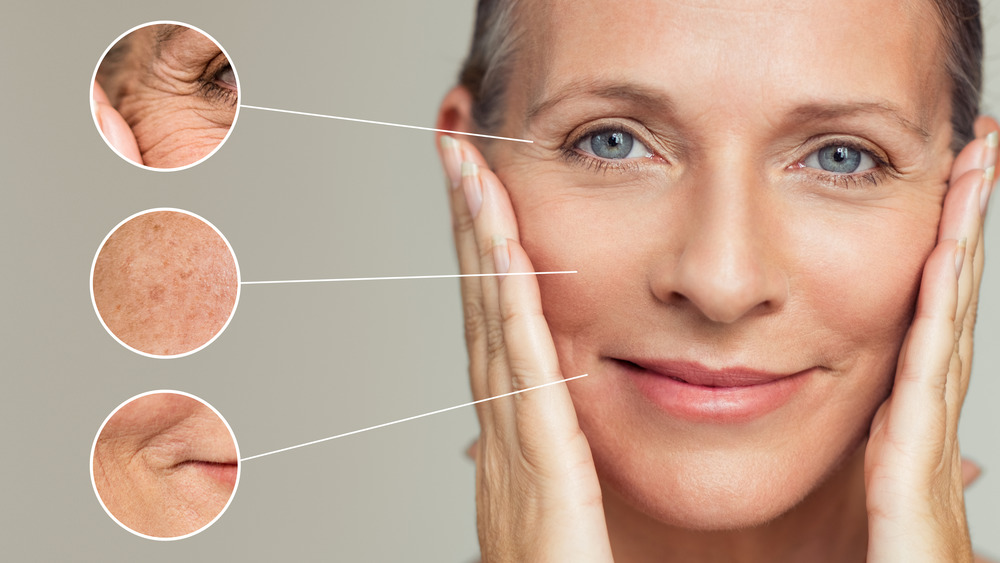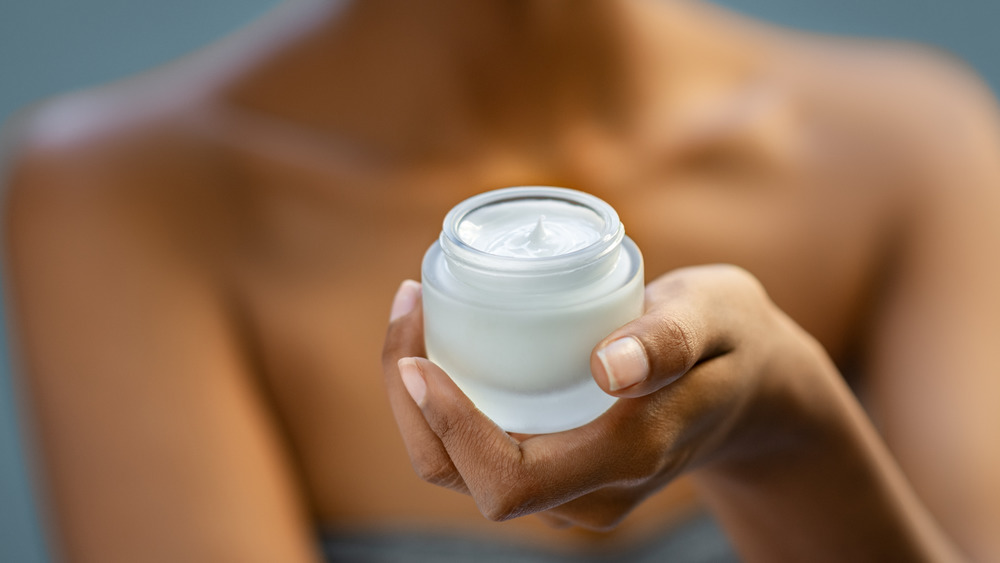How The Skin On Your Face Is Different From The Skin On Your Body
If you've noticed a new wrinkle at the corner of your eye, or maybe an age spot on your cheek, or even just some basic, run-of-the-mill acne on your chin, you might have wondered why these signs of life and aging always seem to appear on your face, where they're highlighted for all to see. Why don't they appear first on, say, the back of your leg, where they could go undetected a little longer?
There's a reason those signs normally appear first on the face. The skin on your face is different from the skin on the rest of the body, in two major ways. First, it's much thinner — up to ten times so — than the skin found on the parts of the body that are more prone to wear and tear, like the palms of the hands, and soles of the feet (via Act For Libraries).
The face needs a little extra tlc
Secondly, the face is constantly exposed to environmental stressors, such as UV rays from the sun, wind, and pollution. The thinness of facial skin makes it sensitive, and this, combined with the onslaught of the elements, speeds the development of wrinkles and other signs of aging. Not only that, but facial skin includes a higher concentration of oil glands than other areas, which can become clogged and acne-prone.
Since the sensitive skin on your face needs a little more TLC than the rest of your body, dermatologists recommend adopting a good skin-care routine, which should include gently cleansing and moisturizing with products that are designed for your skin type, as well as applying sunscreen every day.
It's ok to use facial moisturizer on the rest of your body, but not the other way around. Body lotions tend to be thicker and more likely to irritate sensitive skin and clog facial pores (via Allure). Valerie Goldburt, MD, PhD, and dermatologist at Advanced Dermatology and the Center for Laser and Cosmetic Surgery, says "You can put fragrance lotion on the body, but I wouldn't recommend putting it on your face, especially the eyelids, as they are very sensitive." (Via HowStuffWorks.)


